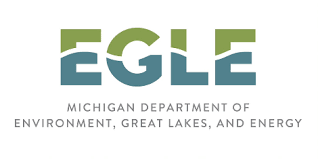Clean Boats, Clean Waters Grants
Clean Boats, Clean Waters grants supply up to $3,000 to organizations communicating aquatic invasive species prevention information through outreach materials and in-person educational events aimed at the boating and angling community. This funding opportunity is competitive, and applications are subject to a review process and ranked based on eligibility, project significance, anticipated outcomes, and target audiences. Organizations qualified for the Michigan Invasive Species Grant Program (MISGP) (e.g., CISMAs) should pursue MISGP funds to perform boater outreach activities. CISMAs can provide support to organizations in their area that are applying for this funding.
CBCW is a joint effort between Michigan State University Extension and the Michigan Department of Environment, Great Lakes, and Energy. This program is funded by the Michigan Invasive Species Grant Program (Michigan.gov/Invasives).
Want to stay updated on future grant funding? Sign up here to be notified of future Clean Boats, Clean Waters grants. We anticipate having funding once a year though 2028.
2026 Grant Information
Application period: Apply now through January 30, 2026.
Projects should focus on outreach and prevention pathways for aquatic invasive species. No local match is required. We encourage applicants to contact program staff to confirm project eligibility before applying.
Examples of grant projects
- Clean Boats, Clean Waters boat decontamination station with invasive species removal tools posted at at a county or township park, nature center or state/local boat launch
- Educational booths at popular boat launches or community events.
- Educational presentations to anglers taking part in a fishing tournament.
Eligible expenditures
- Producing existing state approved aquatic invasive species outreach materials (e.g., printed materials (brochures, rack cards), banners, flags, floating key chains and towels) and/or designing and producing new materials with approved messaging consistent with outreach campaigns in use in Michigan.
- Invasive species removal supplies such as plant removal tools, sponges, wrenches for removing drain plugs, towels, and plastic scrapers.
- Event supplies including tables, chairs, and tents.
- Clean Boats, Clean Waters volunteer recognition apparel items (i.e., lanyards, shirts, aprons, hats).
- Staff time to perform watercraft inspections, demonstration of boat cleaning techniques and/or outreach to boaters.
- Outreach activities can take place at various locations including but not limited to bait and tackle shops, county fairs, public and private boat launches and waterbodies that do and do not have public access.
Ineligible expenditures include but are not limited to the partial purchase, upkeep and/or the maintenance of a mechanical boat washing station (i.e., boat cleaning systems using high pressured water, waterless decontamination systems) and indirect costs and fringe for staffing.
NOTE: Permission of boat launch owners and/or managers needs to be obtained prior to any project implementation. For example, the Michigan Department of Natural Resources (DNR) Parks and Recreation Division may require a use permit for any events held at DNR owned/managed boating access sites. DNR sites and park managers can be found at Michigan’s Recreational Boating Information System site.
Examples of eligible organizations
- Local or tribal units of government
- Lake associations
- Watershed protection groups
- Schools and other youth organizations
- Nature centers
- Non-profit 501(c)(3) organizations
Funding amount
- Grant requests can be up to $3,000
- There is no match or cost sharing requirement.
- Funds will be distributed via reimbursement of eligible expenses.
- Any budget or project changes after a grant has been awarded must be approved in writing.
Required grant activities
- Host a minimum of three outreach events with CBCW approved outreach materials.
- Grantee and/or volunteers will review required CBCW training materials (approximately 1 hour of educational instruction).
- Grantee and/or volunteers will collect and report data on the number of people contacted, volunteer hours (if applicable), number of outreach materials distributed, and locations (minimum of waterbody name, county, and township) for all events and signage.
- Grantee will submit one narrative report of all grant funded activities and expenditures to MSU Extension. A template will be provided to assist with narrative report creation. The narrative report must contain a minimum of five photos of products and/or outreach conducted. The narrative report is due at the time of reimbursement request.
- Grantee will submit all receipts/invoices for reimbursement. MSU Extension will not issue payment to the grantee until all receipts have been submitted. Payment will be issued within 60 days of receiving receipts and report of grantee activities.
Ready to apply?
Deadline to apply is January 30, 2026. Note if these documents do not open for you, contact Kelsey Bockelman (bockelm4@msu.edu).
Grant Application (Microsoft Word)
Grant Budget (Microsoft Excel)
Previously Funded Grant Projects
- In 2025 Clean Boats, Clean Waters funded 12 projects totaling $35,000. Learn more.
- In 2024 Clean Boats, Clean Waters funded 13 projects totaling $35,000. Learn more.
- In 2023 Clean Boats, Clean Waters funded 13 projects totaling $31,000. Learn more.
- In 2022 Clean Boats, Clean Waters funded 12 projects totaling $26,000. Learn more.
- In 2021 Clean Boats, Clean Waters funded 7 projects totaling $19,800. Learn more.
 |
 |
 |

Kelsey Bockelman
Aquatic Invasive Species Prevention Educator
bockelm4@msu.edu



 Print
Print Email
Email